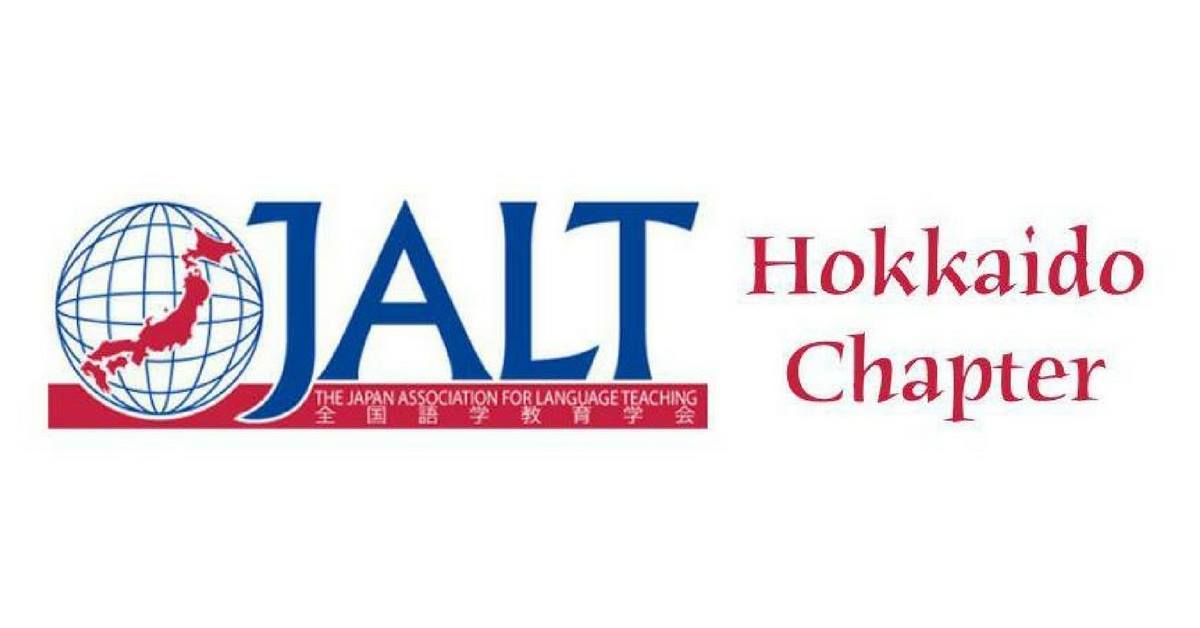2016
2016 Feb
1. Effects of using English in high school homerooms
2. Valentine's Day tips for a happy team teaching experience: Beyond the static view of native and non-native teacher rolesPresenters: Hatsuko Itaya, Aiko Sano, Matthew Neapole
Date: February 14, 2016
Time: 2pm-4pm
Location: L Plaza (Kita 8-jo Nishi 3-chome), 4F, Dai Kenshu Shitsu B/ 札幌エルプラザ(北8条西3丁目」)4F, 中研修室A
Event Fee: JALT Members: Free; Non-members: 500 yen (JALT会員無料、非会員五百円 )
Event Description:
2pm~ Effects of using English in high school homerooms | Hatsuko ITAYA
2:30-3:00pm Networking and break time
3pm~ Valentine's Day tips for a happy team teaching experience: Beyond the static view of native and non-native teacher roles | Aiko Sano & Matthew NeapoleEffects of using English in high school homerooms | Hatsuko ITAYA
MEXT’s new policy for high school English education is that “classes are to be conducted in English in principle.” This guideline, however, is not always followed. The presenter conducted a survey and discovered that 82% of her students at high school preferred classes to be “examination oriented” rather than “communication oriented”, and wanted exam-related teaching to be given in Japanese. Therefore, the presenter used Japanese when explaining how to tackle complicated exam questions to make full use of limited class time. However, in order to increase students’ exposure to spoken English, the presenter conducted morning and afternoon homeroom (HR) sessions in English for two years. In addition, every day one student had to give an English speech for one minute during the morning HR. The result was that most of the students, who didn’t think the idea feasible, responded in questionnaires for two consecutive years that they wanted the English HR to be continued the next year. They also felt that the English HR was beneficial for entrance examinations. In addition, parents also expressed very positive attitudes toward this trial.
Valentine's Day tips for a happy team teaching experience: Beyond the static view of native and non-native teacher roles | Aiko Sano & Matthew Neapole
The Japan Exchange and Teaching Programme (JET) started in 1987 with only 848 college graduates from four countries. The number has grown substantially over decades with some 4786 new JET participants from 43 countries in 2015. The government of Japan is aiming at increasing the number of the participants to 6000 by the year 2020, when Tokyo hosts the Olympic Games. Since JET started, many problems have been pointed out about the programme and many teachers (both Japanese Teachers of English and Assistant Language Teachers) go through traumatic experiences of unsuccessful team-teaching. Often it is suggested that Japanese Teachers of English should take the non-native speaker teacher role and explain grammar and other complicated contents in Japanese or modified English, while Assistant Language Teachers should maximise the students’ exposure to the authentic use of the target language. Ideally they should take turns in leading classes so that they are teaching on an equal level. Is this really the best way to conduct team teaching? In this short presentation we will explore the (many) reasons why team teaching can go wrong, and analyse what made our team teaching a happy experience for both us and (hopefully) for our students.Bio:
Hatsuko Itaya is an associate professor at Hokkaido Musashi Women’s Junior College. She had been teaching at three different high schools and a cram school or Yobikou before taking up her current position in 2014. Her research interests include test washback, teaching methods for high school students and more recently she has been researching interpretation in sport. She has co-authored university exam prep books published by Obunsha and she is also the author of an exam prep book for high school students.
Aiko Sano is currently an associate professor at Hokkaido Bunkyo University. She taught at a public high school for 15 years while pursuing her MA degree in second language education at University of Toronto. Her main research interest is literacy development of bilingual children, and she is currently conducting research in Toronto, Hong Kong, as well as the Deaf school in Sapporo.
Matthew Neapole, Canadian. Born near Toronto, Ontario, grew up in Ottawa. Went to Carleton University, transferred to University of Calgary. Graduated May 2010. Came to Japan the following year, August 2011. Fifth year JET Assistant Language Teacher.
